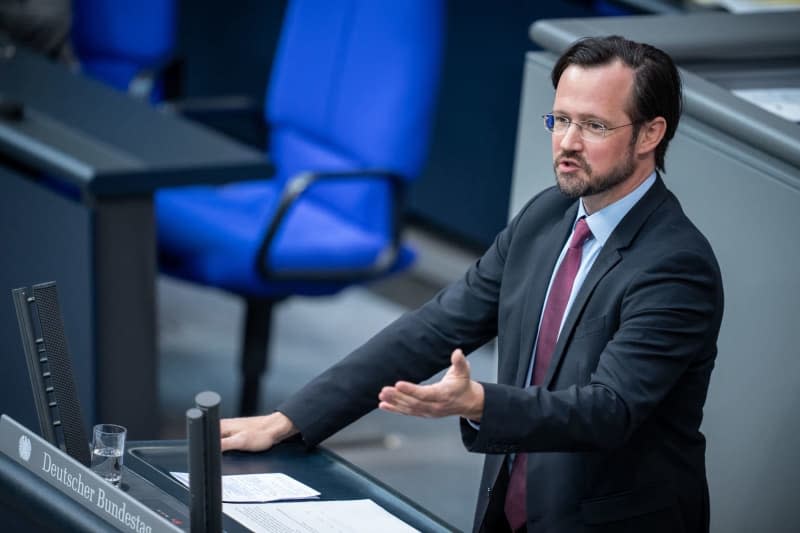German lawmakers accuse far-right AfD of being Russian stooges

German lawmakers from across the political spectrum accused the far-right Alternative for Germany (AfD) party of boosting Russian propaganda and undermining German security during debate in parliament on Thursday.
The debate was called following reports of a Russian disinformation campaign and reports of possible links to AfD politicians.
The Czech government placed sanctions on the pro-Russian internet platform Voice of Europe (VoE). The network published interviews with AfD politicians Petr Bystron and Maximilian Krah.
The Czech newspaper Deník N, citing unnamed ministers and intelligence officials, reported that Bystron may also have accepted money from the pro-Russian platform.
Bystron has denied the allegations.
Irene Mihalic, a Green Party politician, called the AfD a security risk for the German state.
Although Bystron may enjoy the presumption of innocence, she said, the party as a whole has made clear where it stands toward Russian President Vladimir Putin.
"Whether paid or not, ladies and gentlemen, as far as the AfD's links to Putin's Russia are concerned, this party has long since lost its innocence."
Politicians from the centre-left Social Democrats (SPD), the Greens, the liberal-conservative Free Democrats (FDP) and the centre-right CDU/CSU all specifically criticized trips by AfD politicians to Russia and Belarus as election observers as well as visits to the Russian embassy in Berlin.
They also accused the AfD of spreading Russian war propaganda.
The SPD's Dirk Wiese called the AfD "the mouthpiece of the Kremlin" and told lawmakers from the party: "Apply for a seat in the Russian State Duma. Those are the interests you represent, that's where you really belong."
In Germany, Putin has found "his useful idiots and enforcers in the AfD," said the CDU's Christoph de Vries.
The AfD's Stefan Keuter sought to defend his party. He accused the other parties of trying to score campaign points with the attacks, which he called "a witch hunt," and defended Bystron's innocence.
"They have no evidence and are trying to damage a family man," Keuter said.
But Konstantin von Notz, a leader of the Greens, said it was fitting that the AfD had chosen Keuter to speak on their behalf - as Keuter "is in Russia so often that you don't know whether he is a member of the German Bundestag or the Duma."


